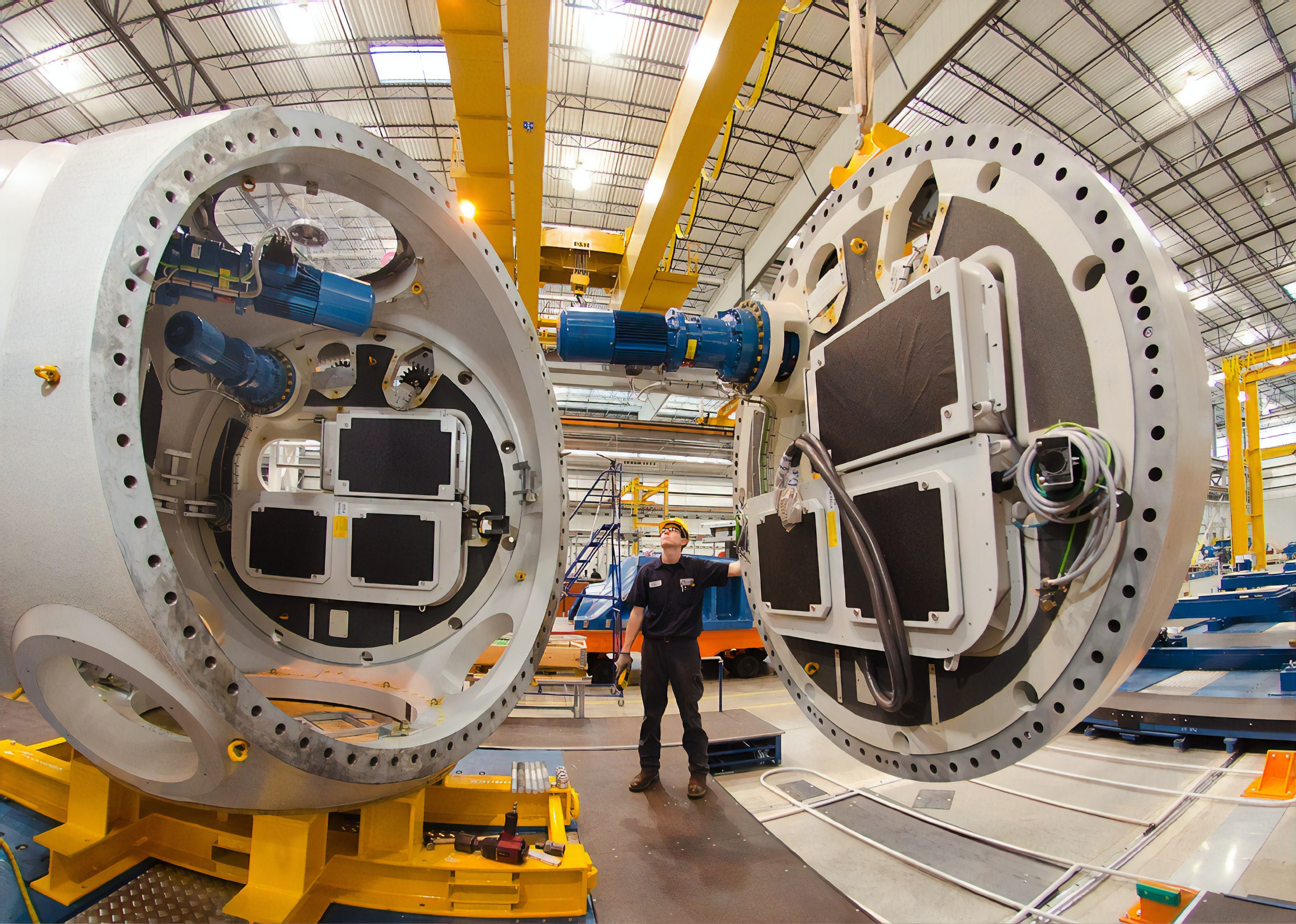Digital World
American Workers Need More Than Just Another Stimulus
Today, July 9th, American workers awoke to improving jobs news, with unemployment rising less than expected to 1.4 million new claims. In June, payrolls rose by 4.8 million and unemployment fell to 11.1 percent. Still, lashed by COVID-19 and the subsequent economic downturn, 45 million Americans have lost jobs and filed for unemployment at some point during the pandemic.
Thankfully, workers’ immediate needs have largely been met by generous supplemental cash payments and Federal Pandemic Unemployment Compensation afforded under the $2.2 trillion CARES Act. But with weekly supplemental unemployment benefits of $600 expiring July 31, unemployed workers are set to lose a vital lifeline that has helped cover bare essentials such as housing, health care and groceries.
Unfortunately, COVID-19 and the subsequent economic downturn has ripped open a new partisan divide over what a sustainable long-term response looks like. Some leaders on Capitol Hill have floated additional cash payments and stimulus until January 2021, while others have expressed optimism about the full resumption of economic activity and a reticence to authorize additional spending. For his part, Senate Majority Leader Mitch McConnell has confirmed that Federal Pandemic Unemployment Compensation will indeed end on July 31.

With the clock ticking, then, the hunt for bipartisan solutions is on. As the job market totters back to life, Congress should fund flexible work-share agreements to encourage a return to part-time work for the duration of the pandemic. Crucially, work shares should also be used to boost workers’ skills, immunizing them against future waves of disruption caused by technology and automation.
Our View of Work – And Unemployment
The world of work is undergoing seismic change stoked by everything from trade and automation to artificial intelligence and the gig economy. With the rapid appearance of COVID-19, pandemics can be added to the litany of challenges facing workers.
Yet despite the rapidly changing nature of work, our conception of what it means to work and have a job remains surprisingly static. Work is still viewed as binary: Either you have a job, or you don’t. For employers, the response to declines in the natural business cycle — and pandemics — is largely the same: permanently lay off or furlough workers. This is precisely why unemployment in the United States spikes at the first hint of a downturn. Relatively few flexible alternatives exist for workers and employers to cope with shocks and stresses — be they pandemic-related or not.
Relatively few flexible alternatives exist for workers and employers to cope with shocks and stresses — be they pandemic-related or not.
COVID-19 and the spike in official unemployment to a high of 14.4 percent shows that we need new coping mechanisms to deal with job loss precipitated by economic downturns. But first we must challenge the binary way in which we view work — and unemployment — in 2020.
Scaling Work Shares
This is where work-shares come in. Common in Europe and parts of the United States, work-shares are built to help workers and employers’ weather economic downturns. In short, they temporarily reduce workers’ hours, while allowing them to keep their employer-provided benefits — and receive unemployment insurance to make up for lost wages.
The approach is not novel. Work shares were pioneered by Weimar Germany, which faced rampant hyperinflation and unemployment in the wake of World War I. In the United States, they were a crucial policy response to mass unemployment generated by the Great Depression. The upheaval caused by the COVID-19 pandemic requires a similar scale of response.

Work-shares enable employers to meet reduced demand for their goods and services during a downturn. Work-shares also allow them to keep skilled workers whom they have invested in over years through job training. By keeping skilled workers on the books, employers can scale up production and reestablish a full-time schedule as the economy returns to normal.
Work-shares enable employers to meet reduced demand for their goods and services during a downturn. Work-shares also allow them to keep skilled workers whom they have invested in over years through job training.
Work-shares are a rare example of a win-win policy for workers and employers. Workers avoid financial ruin as the economy slows, supported by part-time work, and maintain access to employer benefits and pro-rated supplemental unemployment insurance. For example, if an employer reduces a worker’s hours by 30 percent, the worker qualifies for 30 percent of the weekly unemployment benefit allowable in their jurisdiction.
Some states, including Wisconsin, Colorado and Texas, have developed variations of work-share agreements. All together, 27 U.S. states maintain work-share agreements, covering more than 70 percent of the total workforce. But they remain vastly underused: As the pandemic kicked off in March 2020, just 0.3 percent of 8.2 million unemployed workers were enrolled in work-share agreements.
To be sure, Congress has attempted to maintain employment through the CARES Act, which houses the Employee Retention Tax Credit (ERC), and the Payroll Protection Program (PPP). But employers have to be subject to a government-mandated shutdown order related to COVID-19 to quality for ERC. And as of early July, $130 billion in PPP funds remains unspent, with Congress recently extending the program until August 8.
As a start, Congress could nudge states to boost the percentage of hours allowable under their work-share programs. For example, in Arizona, Florida and Texas, workers are eligible only if employers reduce their hours by 10 percent to 40 percent. Due to the pandemic, however, many businesses have reduced hours by more than 40 percent, necessitating at least temporary changes to these requirements.
As a start, Congress could nudge states to boost the percentage of hours allowable under their work-share programs.
At the federal level, Congress could expand work shares to all 50 states, ensure uniform standards, and enshrine workers’ right to long-term access to unemployment insurance if they are participating in a work-share agreement.
Work Shares and the Future of Work
In addition to supporting workers during economic downturns, work-shares can serve the wider purpose of helping workers withstand the disruption caused by technology and automation. COVID-19 has brought with it a series of future-of-work conundrums. On one hand, employers have less cash on hand to invest in worker training and skilling. This means that workers’ skills atrophy during a downturn, while employers pause investments in human capital that pay real dividends during an economic expansion.
On the other hand, due to reduced consumption and a dip in economic activity, many workers have time to participate in additional retraining and skilling. Under a work-share, reduced hours mean workers’ time is freed up to hone skills and capabilities that will increase in value during the recovery. Using work shares to channel funding for training and education allows workers to emerge from the pandemic — and downturn — with greater resilience to technology and automation. If the policy is built and delivered in the right way, they will also emerge with capabilities to engage in the digital economy.
Using work shares to channel funding for training and education allows workers to emerge from the pandemic — and downturn — with greater resilience to technology and automation.
Such a model could be a targeted — and bipartisan — alternative to universal basic income programs proposed by some future-of-work luminaries. Delivering training and education via work shares aligns incentives for workers and employers, and juices the economy with the types of skills that could accelerate the rebound when it arrives.
But first, policymakers need to focus on defining and articulating exactly what skills enable workers to transition between jobs, or from unemployment to a career that is resilient to technology and automation. A great deal of work remains to be done.
Engineering A Return to ‘Good’ Jobs
Work shares build worker resilience in the short and long run, which is why they are used so widely in the European Union, where nearly 27 million workers benefit from the agreements. To be clear: that is 27 million workers who have escaped the debilitating effects of traditional “unemployment.”
Looking beyond short-term needs, work shares should be a cornerstone for building worker resilience in an increasingly disrupted world. For too long, the future-of-work debate has focused narrowly on the impact of technology and automation on workers.
Now it is clear that workers will need to build the skills necessary to survive many types of shocks, including pandemics. Work shares enable policymakers to meet short-term needs while giving workers a chance to master the skills they need to return to “good” jobs that are resilient to technology and automation.
This is precisely why policymakers on the Hill — and around the world — should look to improve upon and fully fund the policy blueprints that already exist.